If you’ve been online on garden sites, garden supply sites, or in your neighborhood brick-and-mortar garden center lately, you may have started noticing a new product: Horticultural Strength Vinegar.
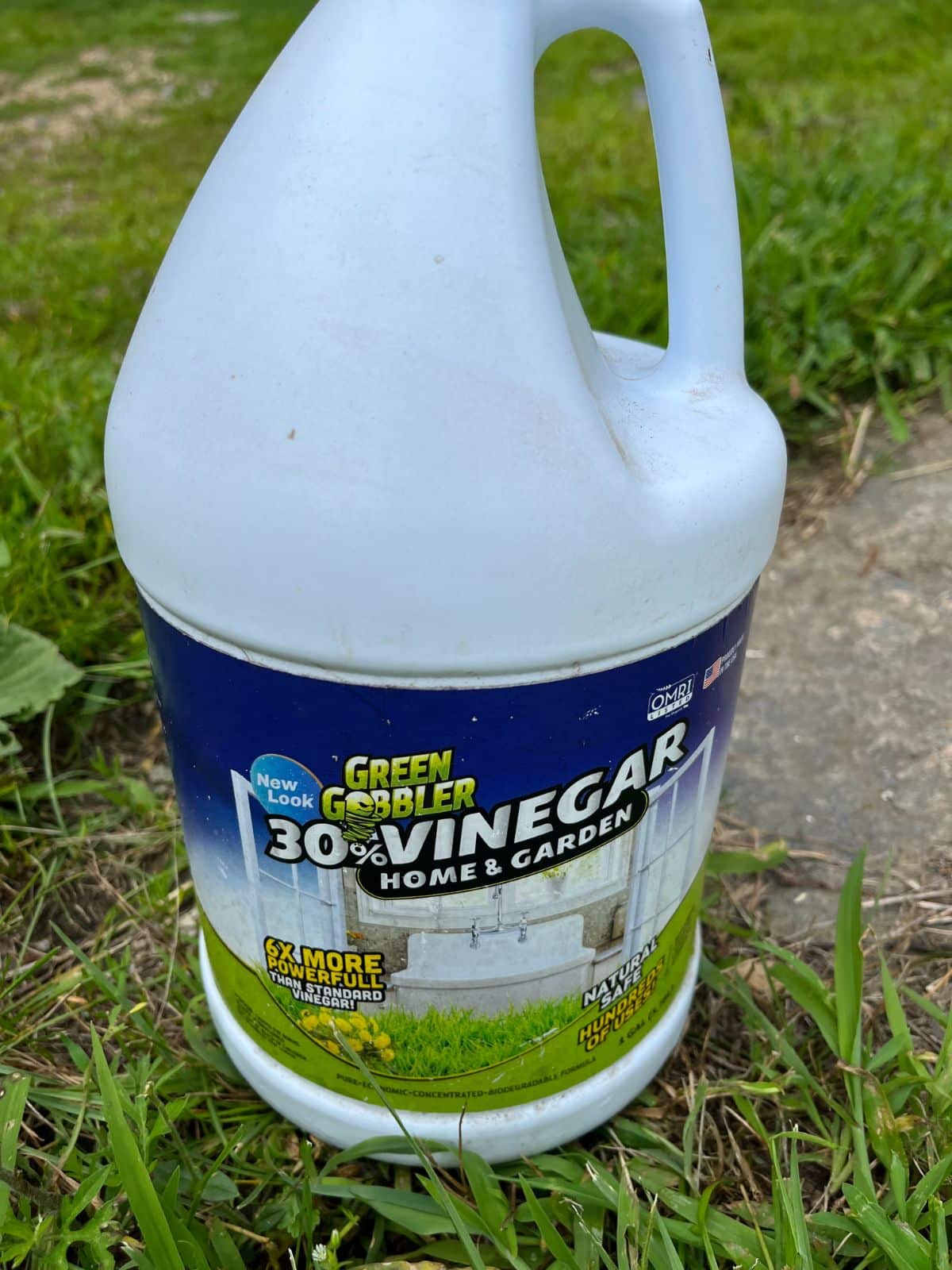
We are seeing this product now because it is emerging as a safer, more natural alternative to harmful synthetic weed killers. As these synthetic products become more strictly regulated and people become more conscientious about the products they spray around their yards and gardens, horticultural vinegar has begun to emerge.
But what is it? Who can use it? And what is the difference between horticultural vinegar and any other type of vinegar?
Jump to:
What is Horticultural Vinegar?
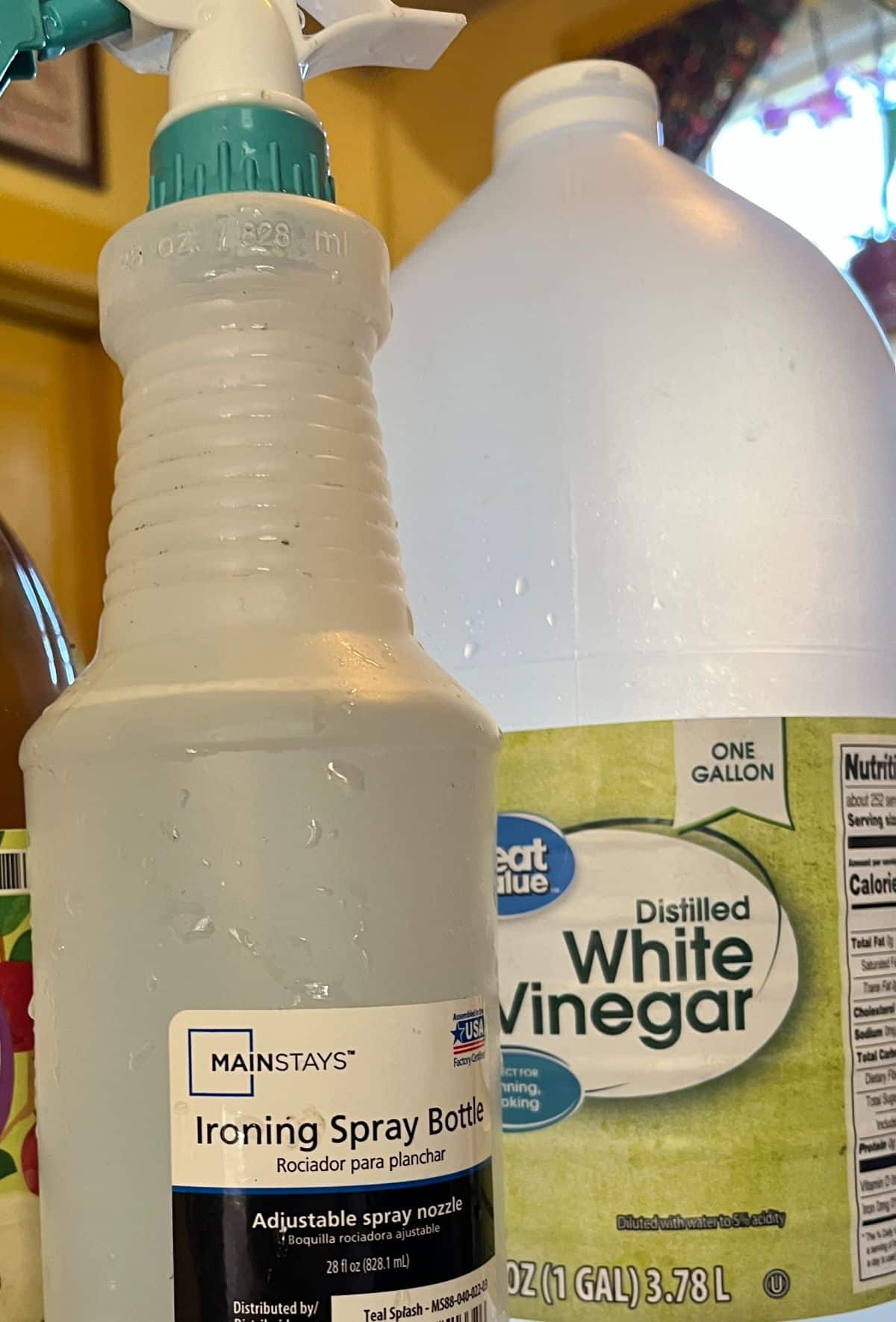
Horticultural vinegar is acetic acid, which is the same product as regular household vinegar. The only difference is that it is much stronger. Horticultural vinegar is less diluted than household vinegar. The higher concentration gives it its higher strength and makes it a more serious acid.
It all has to do with percentages of acidity and the strength of the vinegar. Regular household vinegar is 5% acidity. This is the vinegar that is considered safe for pickling and canning to make vegetables shelf stable.
Horticultural vinegar has a much higher level of acidity. An acidity level of 20% is common for horticultural vinegar. Percent acidities can range much higher and in even stronger concentrations. You may find horticultural vinegar in strengths as high as 30, 40, or 45 percent acidity. At this point, the difference is an even stronger product that will work more effectively.
Be aware that with higher acid levels, the risk of the product to you, personally, is higher, too (and to desirable non-target plants and surrounding surfaces).
It should be noted that lower-strength vinegars are available, too. These may be concentrations of 4% or less. They are not recommended for canning and food preservation because the percent acidity is not considered high enough for safe preservation. These are not great for most gardening uses, either, at least not as weed killers, because the percent acidity is too low for the goal of killing weeds.
You may also see vinegars in grocery stores that vary in strength from around four to six percent that are sold as an alternative, greener, cleaner cleaning product (an alternative to chlorine bleach). For weed killing, you generally want to use vinegar that is at least 5% acidity.
Cleaning vinegars at 6% acidity will be a little more effective against weeds in the garden, but if you are using the vinegar for something like a dilute gnat for fungus killer, you should stick to vinegars with lower acidity. Horticultural vinegar should not be used at all for such uses because it will kill your plants.
The only way you should use horticultural vinegar in the garden is as a weed killer. It is much too strong for any other garden uses.
Who Can Use Horticultural Vinegar?
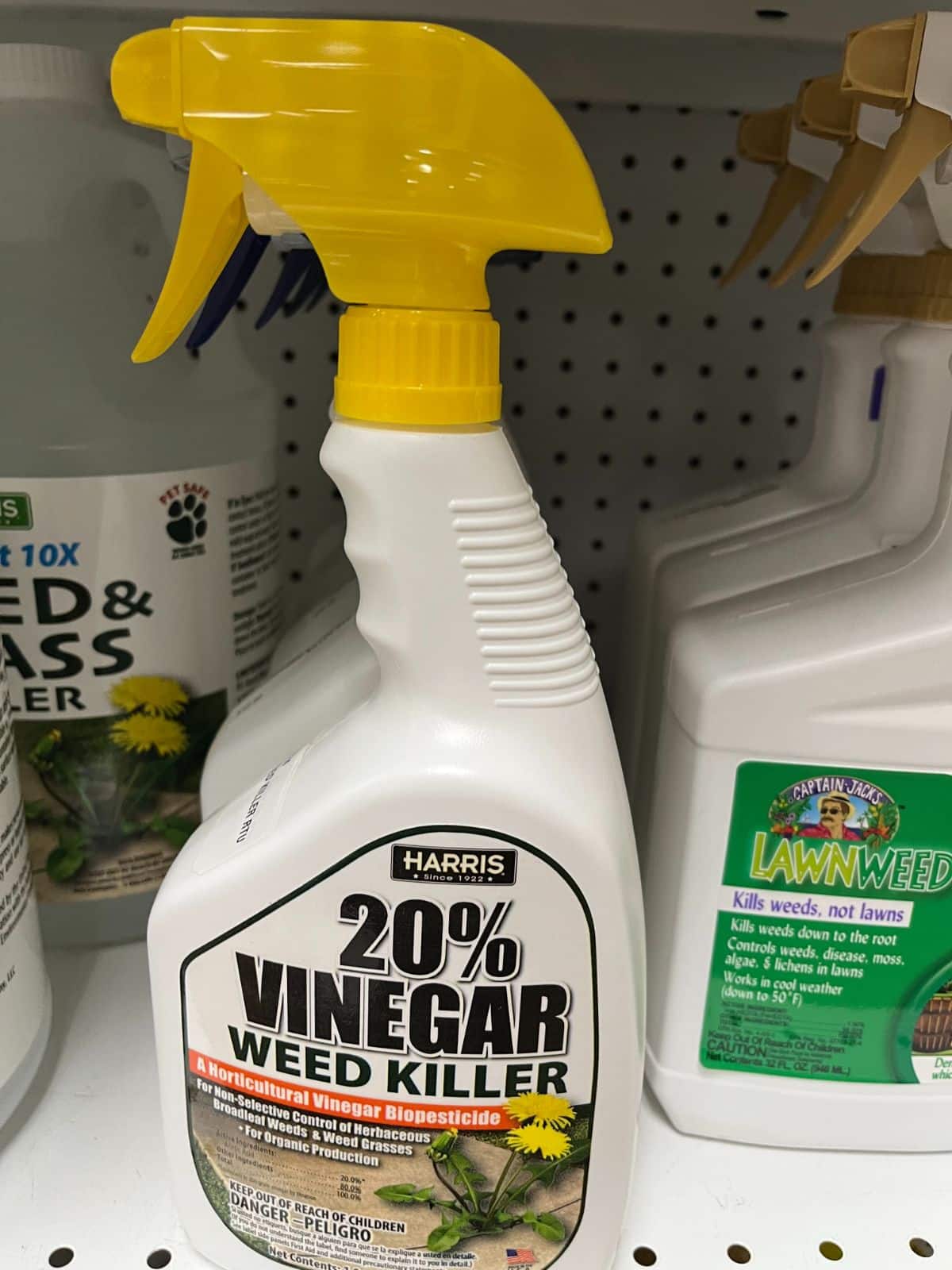
Anyone can use horticultural vinegar. It is for sale and readily available online and in home and garden centers (however, the availability may vary by location in brick-and-mortar stores). You do not need any special license to buy, obtain, possess, or use horticultural vinegar.
Horticultural vinegar is not just for horticulture experts; the label refers more to the strength and intended use than it does to any special requirements for you to use it as a private individual. For your own sake and the sake of those around you, you do need some good, common sense and the willingness to follow recommended safety precautions because it is an acid that can cause damage to skin and eyes,
How Horticultural Vinegar Works as a Weed Killer
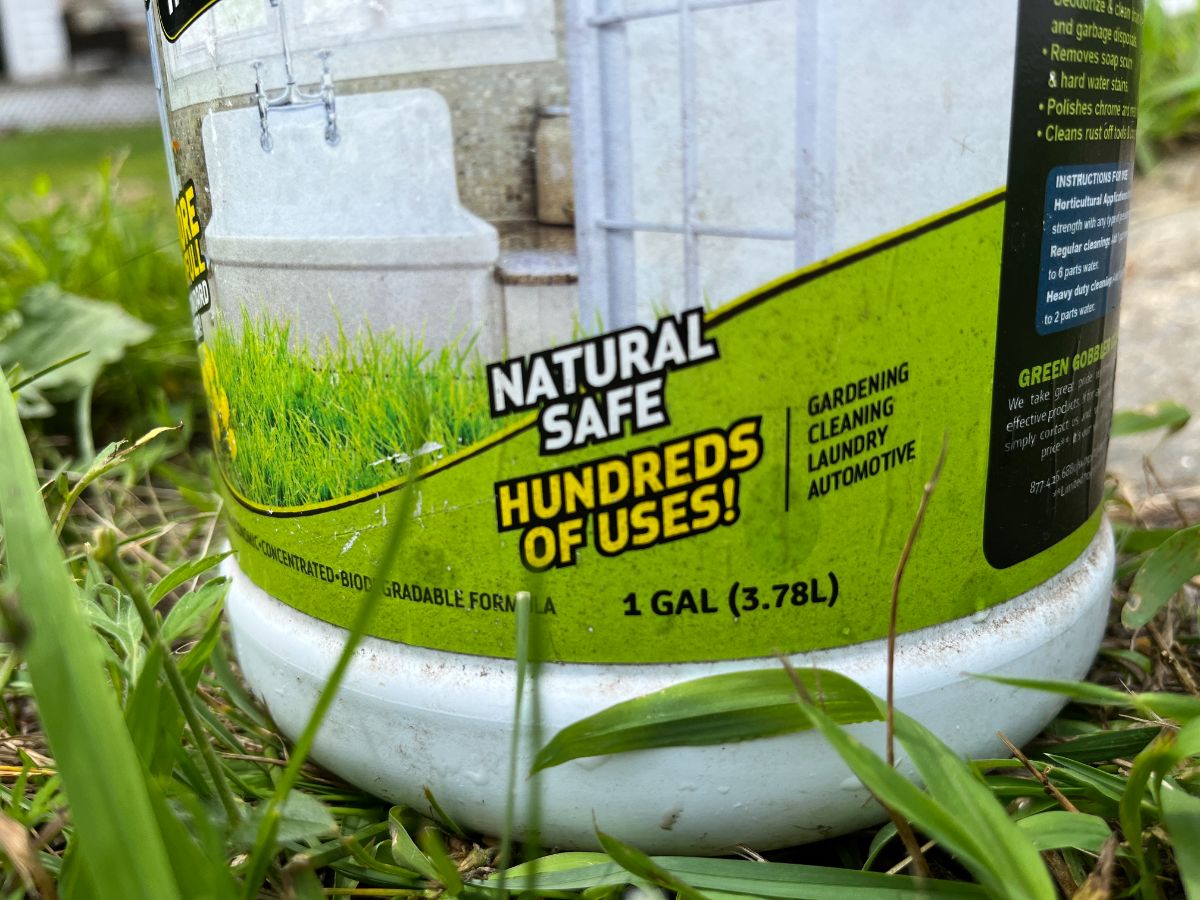
Horticultural vinegar is a contact weed killer. Unlike glyphosate (commonly known as RoundUp) and other chemical and synthetic weed killers, vinegar is not absorbed into the plant systemically. It does not infiltrate the plant and does not circulate through its stem and roots, which is how glyphosate works—sucked into the plant, straight to the roots, and into the ground (effective, but it probably comes at a cost -- one that is still under study).
Vinegar, on the other hand, works by burning and dehydrating the leaves (and, to a lesser extent, the stems) of plants when it comes into contact with them. Leaves are pretty easily burned and effectively killed, starting in minutes and over the course of one or more hours.
The leafier the plant (for example, broad-leaf plants with larger, more tender leaves), the better horticultural vinegar works. If the stems and other parts of the plant are young enough, it will burn them, too, but for older plants with stronger or woodier stems, the stems are not much affected. Horticultural vinegar works relatively well on grasses, but the roots are usually not killed with a single application, so reapplication is often necessary.
What horticultural vinegar does not do well is directly kill the roots of the plant (and, as mentioned above, perhaps not the stems). However, as we know, plants cannot live without their leaves—their food production systems. The goal with horticultural vinegar is to defoliate the plants to deny them their ability to produce food, starving the roots and killing the plant.
Seeds of weeds are not usually harmed much and don’t usually die from using horticultural vinegar. For the most part, the plant needs to have germinated for vinegar to work.
What horticultural vinegar has over normal household vinegar is its strength—it kills faster on contact and works more completely to burn and defoliate leaves. On some plants, it is strong enough to burn the plant completely enough where it cannot easily recover, and so it dies off, often for the entire season and, in some cases, permanently.
University experts point out that using vinegar as a weed control is a fairly new practice. It is still being refined and still being studied. As we do so, we will learn more through research about how horticultural vinegar works as a weed killer. You can make your own observations, too, and take note of how well the vinegar is working for you.
It’s recommended you pay attention (and even better, take notes) to things like when the vinegar was applied, to what plants, weather conditions, and temperature, how well it worked, and when and if you had to reapply the product. Also, track the weeds the next year and note if the weeds came back or are gone for good.
When Horticultural Vinegar Works Best
- When applied to young plants, ideally soon after they have germinated (best when used within the first two weeks and when the plant is in the two- to five-leaf stage)
- When reapplied regularly for harder-to-kill plants
- On annual weeds
- On perennial weeds, if diligent enough to starve and kill the root
- On perennial weeds, when the root is removed after the plant is killed
- Applied mid-morning to early afternoon when the sun is strongest and can amplify the burning effect of the horticultural vinegar
- On a calm day (for both safety reasons and reasons of targeting and effectiveness)
- On a warm to hot day (again, amplifying the effects)
- In full sun if possible (depending on the target plant location)
- On a day without rain in the forecast for at least 24 hours (ideally)
- On a day when it has not rained in the last 24 to 48 hours
Some Pros and Cons of Using Horticultural Vinegar
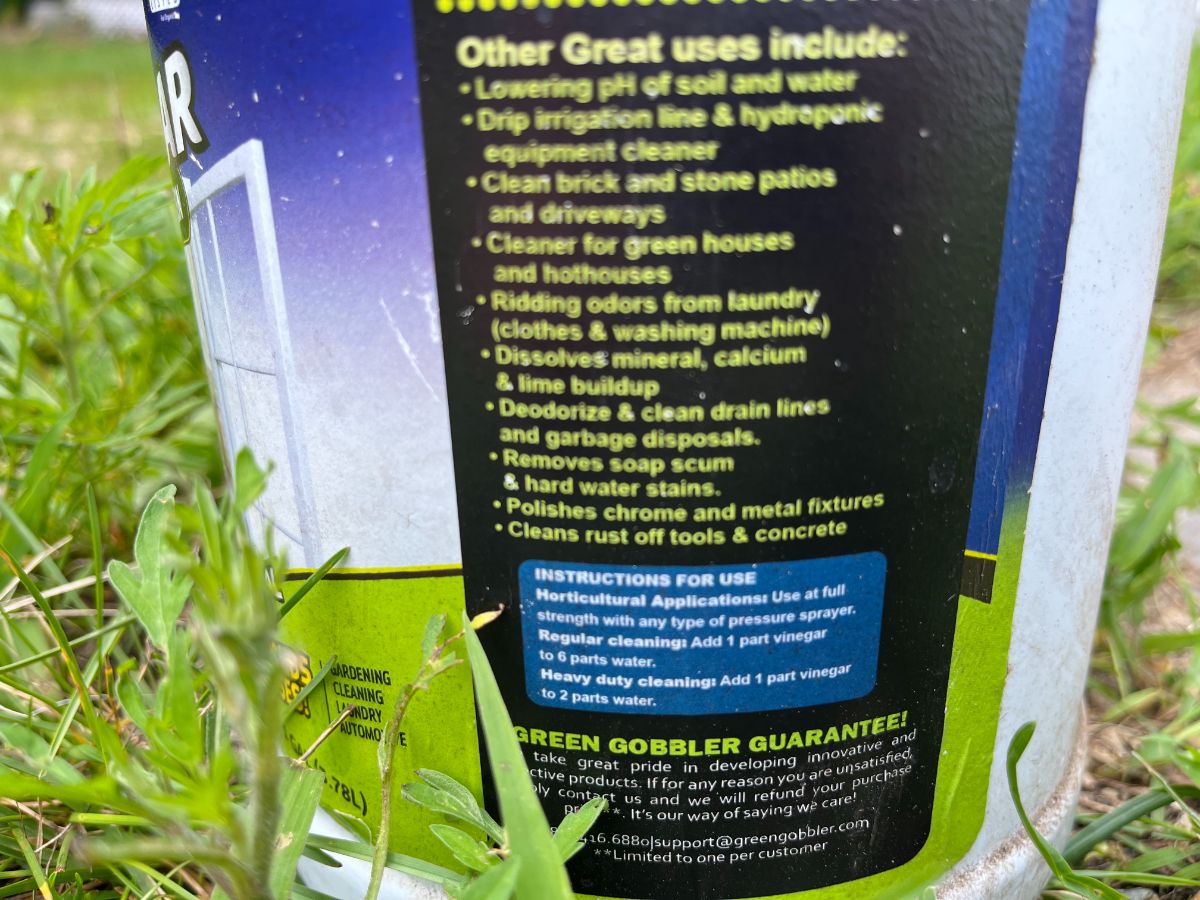
- Horticultural vinegar is much more expensive than household white vinegar
- Often needs to be applied more than once to truly kill a plant
- Does have some risk if not used cautiously
- Low impact on the environment, breaks down quickly
- Safe for pets and children after it dries
- Has some odor but dissipates quickly and will not last more than a few days
- Not a known cancer-causing agent
- No long-lasting residual effects in the ground or water
- Kills quickly—effects are obvious within 24 hours, as opposed to a 7 to 10-day (about 1 and a half weeks) kill rate for glyphosate
- Will kill desirable plants if it is over sprayed
- No residual activity after initial spraying and contact (In other words, it cannot run off to kill plants around it. If the vinegar doesn’t touch it, there will not be any lasting damage to other plants or soil.)
- Can cause etching, discoloration, and damage to some materials, like metals and stones, and concrete
Handle With Care!
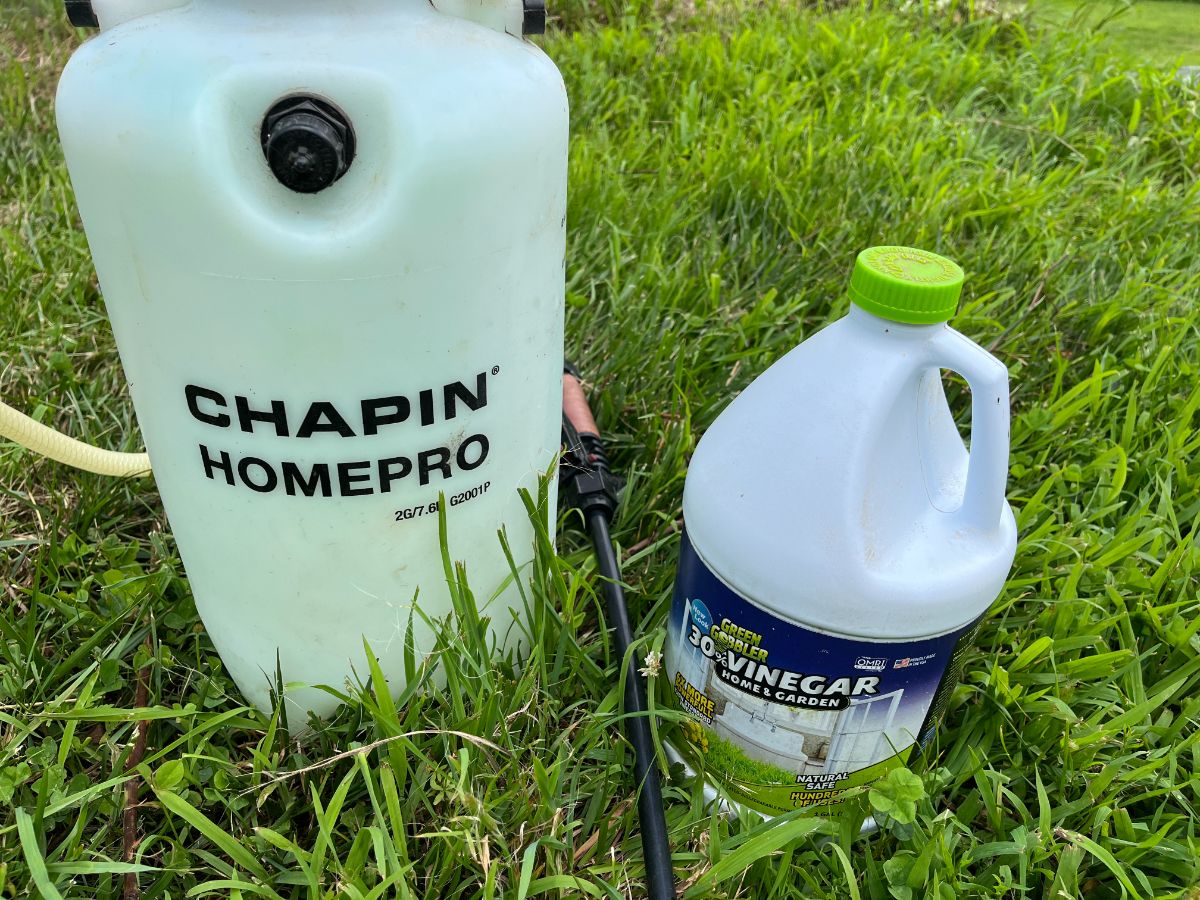
Horticultural vinegar has a high acid content. This is why it works to kill plants. It can also be damaging to the skin, is a danger to the eyes if it gets in them either from spray drift or from rubbing with hands, etc., and it can be harmful if inhaled.
Further, pets or children who sit or roll in grasses or weeds that were very recently sprayed with vinegar are at risk for burns and inhalation dangers, too. The danger exists for as long as the product is wet but diminishes when the product dries. Typically, it does not take long for vinegar to dry under normal outdoor conditions. Since the best time to apply vinegar for weed control is in warm or hot weather and in bright, full sun, this is usually not long at all.
Common precautions when using horticultural vinegar include:
- Cover the eyes when preparing and spraying horticultural vinegar. Wear goggles or safety glasses with protection above, below, and around the eyes.
- Wear a mask, respirator, or face covering to prevent directly inhaling the fumes from horticultural vinegar.
- Wear protective clothing to avoid direct contact with the skin—long sleeves and pants, and gloves.
- If you spill horticultural vinegar on your clothing, remove them and rinse your skin well with running water.
- Do not spray in windy conditions. Avoid over drift onto desirable plants and onto bare skin, eyes, and into lungs.
To be fair, these risks do exist with normal household vinegar, too—you also would not want to inhale household vinegar, and dumping it directly on your skin probably won’t cause a burn but isn’t great for it. Household vinegar is definitely damaging to the eyes, even at a typical 5% acidity.
However, the risk is much greater with horticultural vinegar because of the sheer strength of the product. Risks increase with the percentage of acidity in the product. So, 20% horticultural vinegar is a serious product to be using, and 30% or 45% (other commonly available percentages) is even more so. Caution must always be taken when using any full-powered vinegar, and especially with horticultural strength vinegars.
If these high concentrations (and the increased risks that come along with them) scare you, you can use household vinegar mixed with salt and dish soap. It does work but needs repeated applications, and experts say the salt part is important to include (because it causes further dehydration in the plant and makes the lower acid more effective). Be aware that the salt in this recipe can build up in the soil over time, which can cause some problems if you are planting in the soil.
At the end of the day, using horticultural strength vinegar is the same as using any solution, pesticide, or herbicide (including organic). Read product labels. Follow instructions for safe use. Take them seriously, and don’t ignore them. As long as you do this, you can safely use horticultural vinegar in your yard and garden, and you can feel good about the fact that you are leaving no trace of lasting harm behind you.

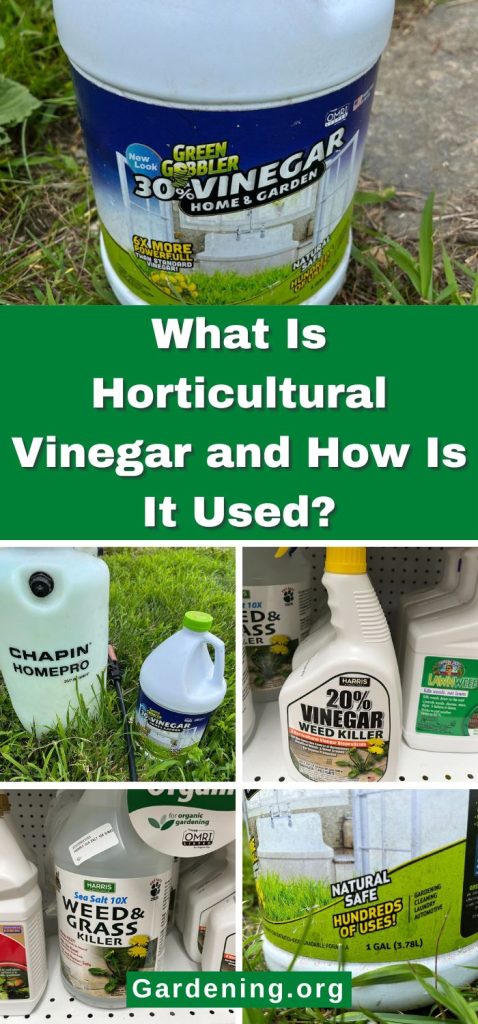
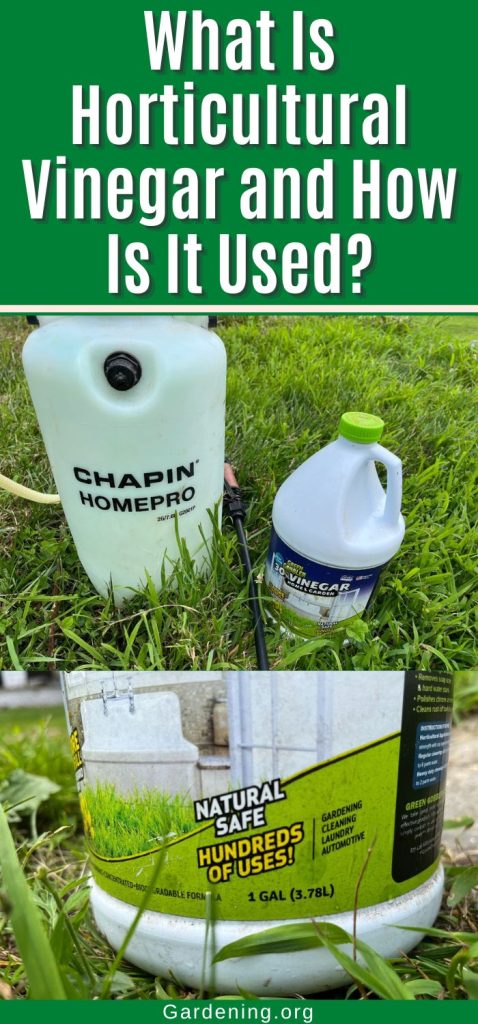
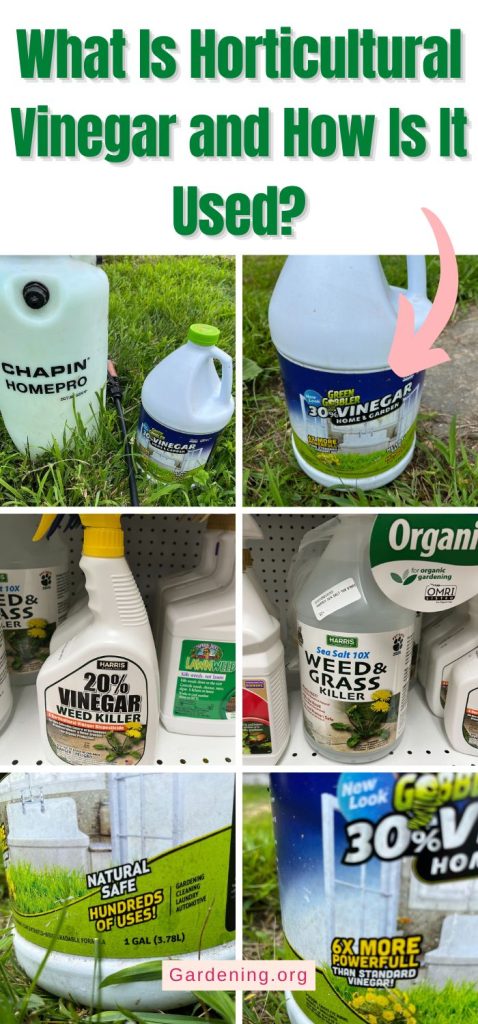
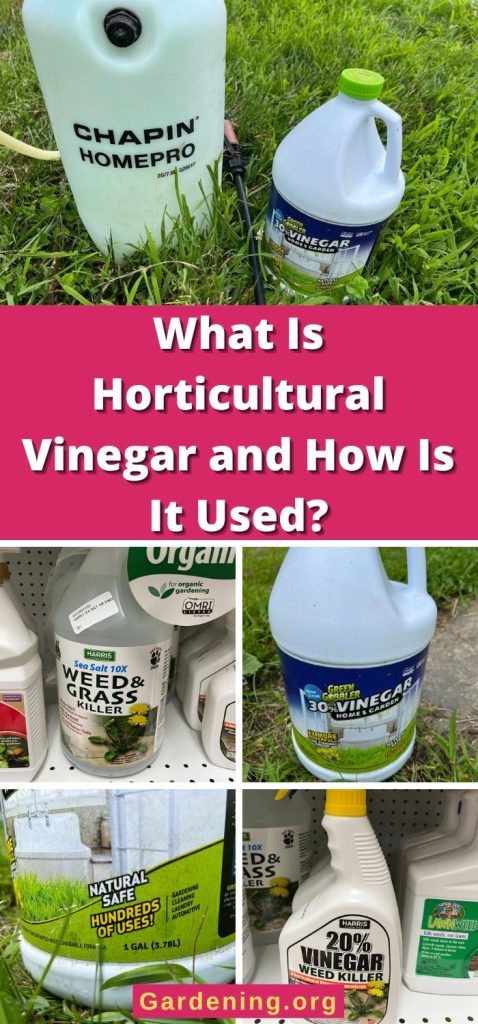
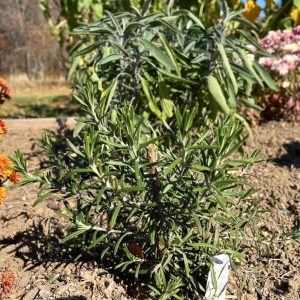
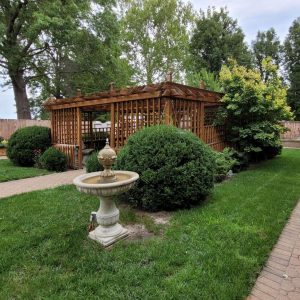
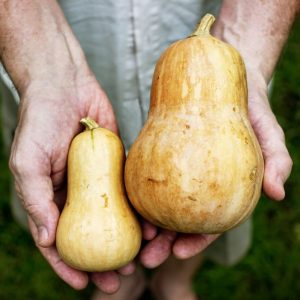
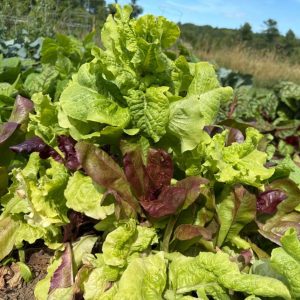
Leave a Reply